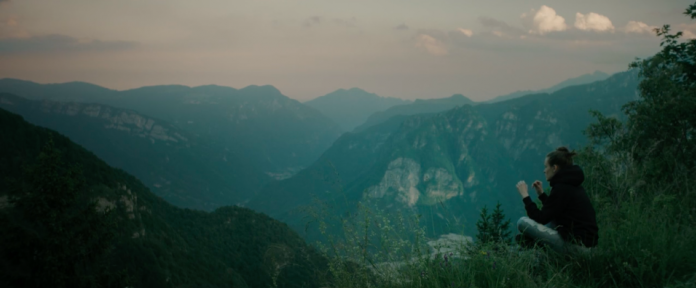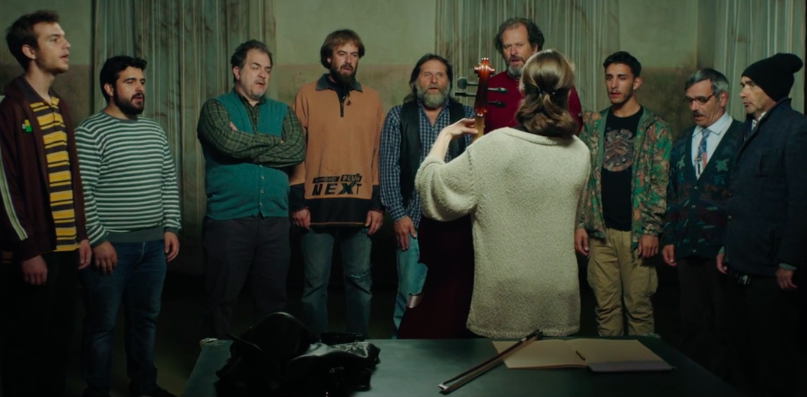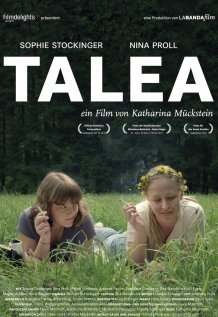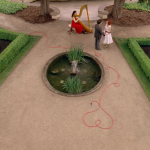Director: Renzo Carbonera
Hong Kong International Film & TV Market review
Set in an isolated village amidst the Italian Alps, Renzo Carbonera’s feature length film Resina expresses a story of loss and renewal through a meditative lens. A young woman, Maria (played by Maria Roveran), returns home to attend her brother’s funeral. However, rather than focusing on the loss of a family member, Resina focuses on the grief, acceptance, and rediscovery of an aspiring musician’s failure and remaking.
The film is what some might call a docufiction, since Maria’s experience is inspired by a true story. In fact, Carbonera created the film after having previously told this story in an hour-long TV documentary, Stop and Listen. Maria had moved to Turin to improve her music and audition for a spot in local orchestras. Without any advancement in the big city, she returns home to her family resigned and embarrassed, perhaps the reason for which her interactions with others are short and include minimal dialogue.
Although disillusioned by her failure in Turin, Maria meets a group of older male vocalists who still meet for choral practice, despite having disbanded years ago and losing many of their members. Interestingly, during an interview with the Montreal World Film Festival, Carbonera stated that the actor-singers are part of a famous choir in Italy. One of the vocalists recognizes Maria and asks her to direct them, because he believes his choir has forgotten the essence of music and what it used to mean to them. The second half of the film focuses on Maria and the choir’s lessons, and these meetings encourage them to remember music’s original purpose in their lives.

The narrative is slow moving without much plot advancement, and unfortunately, it has weakly developed characters. However, Resina has a beautiful setting, and its cinematic use of natural scenery creates an inspiring visualization of music and rediscovery.
The town, Luserna, inhabits only around 300 people, and one of its unique qualities is its linguistic history; a large portion of the town still speaks Cimbrian, a German infused Italian dialect spoken in certain parts of Northern Italy. In its opening sequence the film makes note of this linguistic peculiarity, and while we hear very little of the language throughout the film (at times heard in the choir’s vocal arrangements), it creates an apt foundation for the film’s underlying theme of finding renewal.
By setting the story in this small village amongst the mountains (the real story occurred in a different town, Ruda), Carbonera highlights themes of meditation and slowness. He frequently includes establishing shots of the mountains; in fact, there are so many of the shots that one begins to feel that nature is one of the film’s main characters. These images are also framed with the choir’s and Maria’s music lessons, creating a connection between music, patience, and the meditative practice of being present.
Although the film is not always attention catching, it does a great job of connecting music, mindfulness, and nature, in turn visualizing the way in which many musicians feel about music.
Recommended viewing on FilmDoo:
Find more European films here








